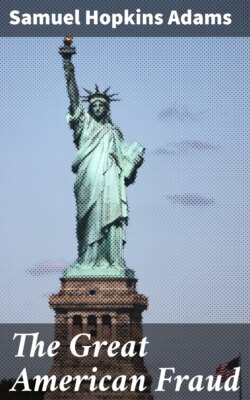Читать книгу The Great American Fraud - Samuel Hopkins Adams - Страница 15
На сайте Литреса книга снята с продажи.
A Post-Office Report.
ОглавлениеTable of Contents
That the advertising and circular statements circulated through the mails were materially and substantially false, with the result of cheating and defrauding those into whose hands the statements came;
That, while the remedies did possess medicinal properties, these were not such as to carry out the cures promised;
That the advertiser knew he was deceiving;
That in the sale and distribution of his medicines the complainant made no inquiry into the specific character of the disease in any individual case, but supplied the same remedies and prescribed the same mode of treatment to all alike.
Should the department apply these principles to the patent-medicine field generally, a number of conspicuous nostrums would cease to be pat-, rons of Uncle Sam's mail service.
Some states have made a good start in the matter of legislation, among them Michigan, which does not, however, enforce its recent strong law. Massachusetts, which has done more, through the admirable work of its State Board of Health, than any other agency to educate the public on the patent-medicine question, is unable to get a law restricting this trade. In New Hampshire, too, the proprietary interests have proven too strong, and the Mallonee bill was destroyed by the almost united opposition of a "red-clause" press. North Dakota proved more independent. After Jan. 1, 1906, all medicines sold in that state, except on physicians' prescriptions, which contain chloral, ergot, morphin, opium, cocain, bromin, iodin or any of their compounds or derivatives, or more than 5 per cent, of alcohol, must so state on the label. When this bill became a law, the Proprietary Association of America proceeded to blight the state by resolving that its members should offer no goods for sale there.
Boards of health in various parts of the country are doing valuable educational work, the North Dakota board having led in the legislation. The Massachusetts, Connecticut and North Carolina boards have been active. The New York State board has kept its hands off patent medicines, but the Board of Pharmacy has made a cautious but promising beginning by compelling all makers of powders containing cocain to put a poison label on their goods; and it proposes to extend this ruling gradually to other dangerous compositions.
